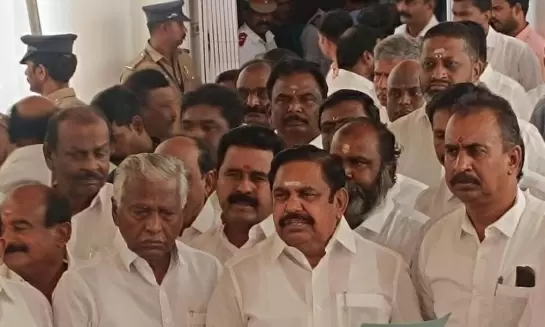Introduce paper receipts in EVMs for fair polls
09-August-2013
The late lamented Soviet leader Joseph Stalin is credited with the saying: “He who casts a vote decides nothing. He who counts the votes decides everything.” For a vote to mean anything, those counting the ballot must have a greater respect for the integrity of democracy.
But it is always better to tighten the system to eliminate malpractices than leave the fate of a nation to a vulnerable process.
With the electronic voting machines used by the Election Commission of India, the count can be decided even before the casting of votes. In fact it happened in the 2009 Lok Sabha election when the result of a coastal Andhra constituency was found on the EC website days before polling.
In Sivaganga, the majority of the electorate claimed to have voted for Raja Kannappan of the AIADMK. Those who counted the votes declared P Chidambaram of the Congress elected.
Kannan’s petition challenging the counting is pending in the Madras High Court. What good is the verdict given after nine months when the term of the present Lok Sabha ends?
The Election Commission had given an assurance to a Supreme Court Bench comprising Justices P Sathasivam and Ranjan Gogoi three years ago, on a petition by Janata Party president Subramanian Swamy to scrap EVMs, to try out a paper trail system to restore people’s confidence in electronic voting.
The EC told the court that it had done a trial of Voter Verifiable Paper Audit Trail in EVMs used in 180 polling stations in different States and that it could be incorporated in all its EVMs if necessary.
Waiting for almost three years without taking any steps to modify the existing 14 lakh EVMs to provide paper receipt, the EC has just placed an order with public sector BHEL and ECIL for two lakh new machines sans paper trail, indicating it has no intention of implementing the reform.
In Germany, it took just one sitting of its Federal Constitutional Court to declare electronic voting unconstitutional and restore the good old paper ballot system.
Most electronic transactions such as money transfer via internet or cash withdrawal from ATM machines can be verified, but that is not the case with electronic voting.
EVM without paper trail is not fully trustworthy. When a voter casts his vote, he hears a beep and sees a flash of light. What happens to the data is not known.
There are two risks involved: hacking by technically skilled people and manipulation by insiders, including those responsible for safeguarding the EVMs.
The contradiction between the public nature of election and the secret nature of voting renders it impossible to create a tamper-proof voting system that is based entirely on electronic machine.
Some countries use paper trail or scanners to make recounting possible if it becomes necessary.
Efficiency of EVM should not restrict the basic rights of the voter. Even if EVM is not rigged, you cannot trust the integrity of the procedure that cannot be verified.
Hari Prasad, a Hyderabad-based computer engineer, demonstrated publicly in a television channel in 2010 how easily the EVM used by the EC can be manipulated.
So vindictive was the EC, it launched criminal prosecution against him. He was even accused of stealing the EVM. It only showed how easily EVMs could be taken out of the EC’s custody and then tampered with.
Prasad’s only intention was to protect the integrity of the electoral process in the world’s largest democracy. With the electorate touching almost 800 million, going back to paper ballots may not be feasible.
But the EC could certainly introduce EVMs with paper trail to demonstrate its deep and abiding commitment to free and fair elections.
Digital Payments Surge in India: 18,120 Crore Transactions in FY24-25
Weather Dept Predicts Heavy Rains In Several TN Districts
Chitra Subramaniam’s Book Boforsgate Exposes Arms Trade, Corruption, and Political Intrigue
Israeli Tourist Gang-Rape Case: Third Accused Nabbed in Chennai
Indian Startup Founder Salaries Drop 25% Amid Funding Winter









